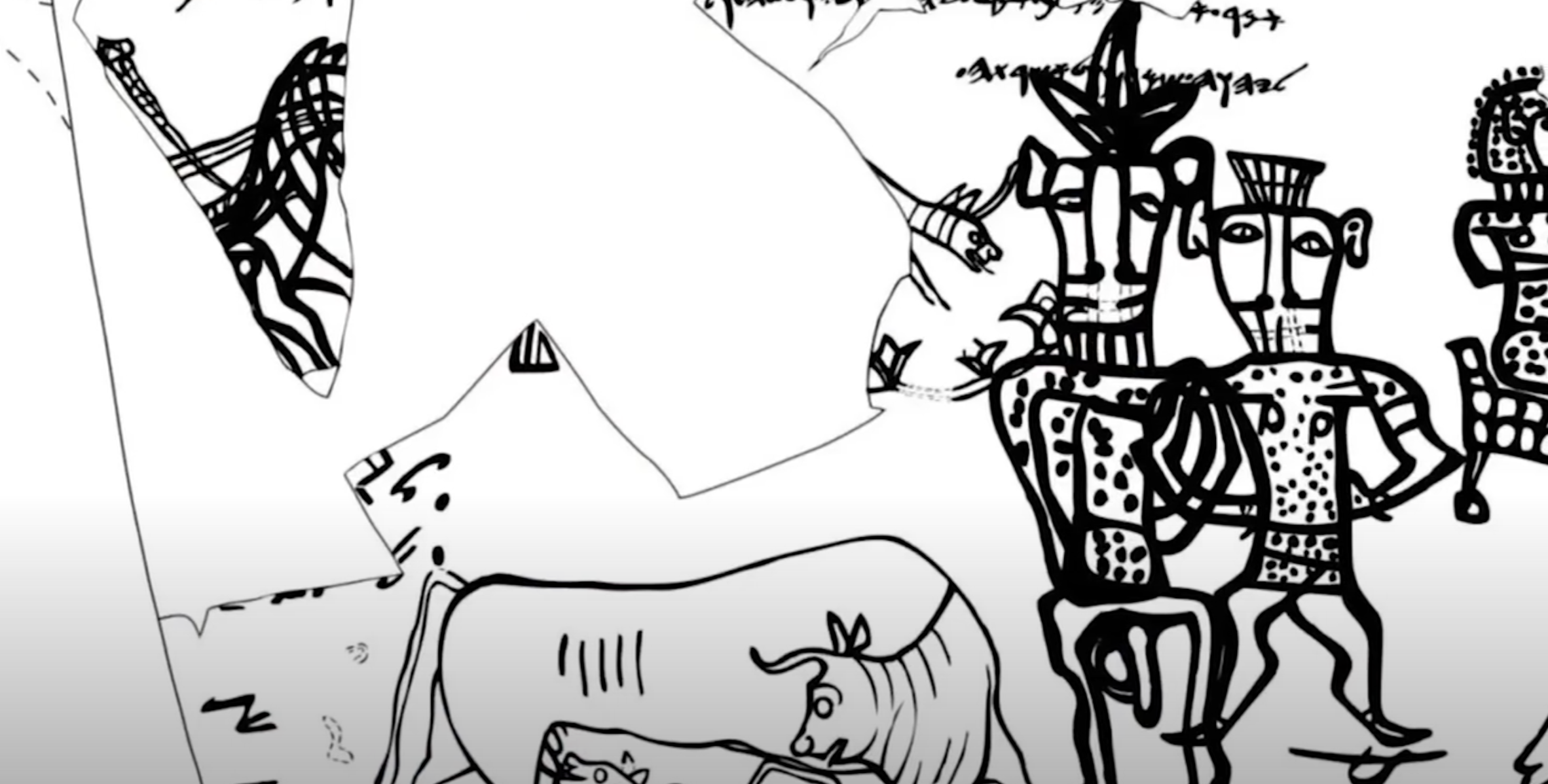Tears on Your Shoulder (2)
Lord, the God of my salvation, I have cried out by day and in the night before You. Psalm 88:1 (English) NASB
Lord, the God – Make sure you realize why both of these words are found at the beginning of this poem. YHVH, of course, and ʾĕlōhîm. Today we consider both of these as designations of the same Being, namely, the one true God. But when the poem was written, this was not the case. David (and the sons of Korah) lived in a polytheistic world. There were plenty of other gods in the nearby cultures, in fact, even within Israel. By the time the prophets came on the scene, variations of the combination of Canaanite gods and the God of Israel were scattered across the countryside. Idolatry was a recognizable social and religious problem. Consider this drawing found among the archeological sites in Israel:

It takes but a moment to recognize the sexual idolatry attributed to the god, an example of syncretism between Israel and Canaan. Our poet wants to make absolutely certain that the singers know this song isn’t about a Canaanite combination. When he cries out to his god, it’s YHVH, the God of his salvation that he addresses. We might think he’s simply being repetitious, but we’d be mistaken. He’s being deliberate, excluding anything like the god in the drawing.
Then we notice that it is this God, YHVH, who is the God of his salvation. And what does that mean? yĕšûʿâ is basically about open space. “The root meaning in Arabic is ‘make wide’ or ‘make sufficient’; this root is in contrast to ṣārar‘narrow,’ which means ‘be restricted’ or ‘cause distress.’ That which is wide connotes freedom from distress and the ability to pursue one’s own objectives. To move from distress to safety requires deliverance. Generally the deliverance must come from somewhere outside the party oppressed.”[1] You can think of the opposite as Mitzrayim (Egypt), a place of confinement, restriction, compulsion, and constraint. To be saved is to be released, to be unblocked, open for business. It’s not about escaping to another world. It’s about being freed to do what is right in this space. It’s about having “room to breathe.” If we really want to get metaphysical about it, we might suggest that being saved is experiencing liberation from the murmuring deep, the ḥōšek of our lives that attempts to overwhelm us (cf. Genesis 1:2). It is to step into the light.
That’s what we want, right? Space, breathing room, emancipation, deliverance, latitude, flexibility, spontaneity—in a word, freedom. But it doesn’t always work that way, does it? The threatening dark, the murmuring deep, just seems to claw at us whenever we let our guard down. So we cry out “day and night before” this personal, particular God. That’s where we must start, with the cry, the inarticulate soulful expression of pain. If this God doesn’t hear us here, then He’s no different than those deaf substitutes. But if He does hear us, we can move to the next step: does it matter? Does He care?
Addition:
Prayer doesn’t begin with “Our Father.” It begins with something that can’t be written, with tears on the shoulder, with sobs and shakes—and the need to be held. It begins with a broken heart.
When the Church inaugurated the Lord’s Prayer as the epitome of spiritual expression, it obscured the real human reality. Life isn’t just difficult. Life hurts! If there is no God who empathizes with our pain, then whatever god we’re offered isn’t going to be enough. We can get to the Lord’s Prayer introduction, “Our Father,” only if we know that He is our Father, and that means some sort of bond, some kind of compassion, some experience of our tragedy must also be on His heart.
Topical Index: Lord, God, ʾĕlōhîm, salvation, yĕšûʿâ, Mitzrayim, Psalm 88:1
[1] Hartley, J. E. (1999). 929 יָשַׁע. R. L. Harris, G. L. Archer Jr., & B. K. Waltke (Eds.), Theological Wordbook of the Old Testament (electronic ed., p. 414). Chicago: Moody Press.




“Being freed to do what is right in this space“… deliverance… salvation… rendered by the God who empathizes with our pain… the God who is Father. Emet… and amen. Hallelujah!
It is the Father who “syncretic-ally” enlarges the space of liberating freedom embodied in life by those he loves… represented existentially and systematically both as a coherent picture of the requirements of holiness (eg. Judaism) and with the transforming influence of God’s Spirit (eg. Christianity) in the settings and strands of ordinary life.